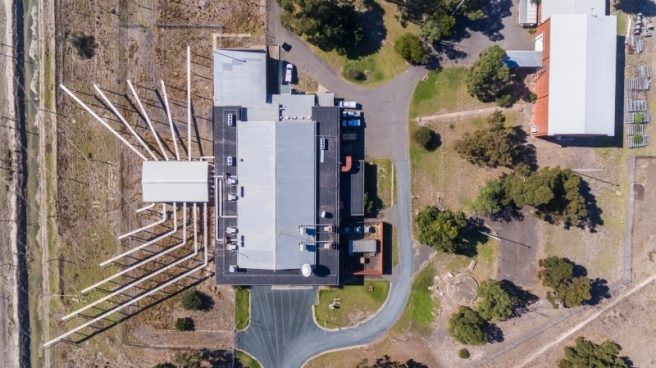(Source: RadioInfo via William Lee and Dennis Dura)
Australian Foreign Minister Julie Bishop has told [ ABC’s Radio National ] RN’s Fran Kelly that her party did not support the ABC’s decision to switch off short wave services in the Pacific.
“It is not a decision of the Australian government,” she said.
Bishop has travelled to Samoa to launch a radio transmission facility, funded by Australia’s aid program, to support disaster management and emergency management.
“We have a media assistance scheme to ensure that radio transmission can continue… I would certainly encourage the ABC to continue shortwave transmission in the Pacific.”
Asked by Fran Kelly if that funding could have been given to the ABC given that the cuts were the result of funding decisions at the time, Minister Bishop said: “The ABC determines its priorities…”[…]


Radio Australia was the ABC’s responsibility. The government kept an arms length with the public broadcaster. Even with the cuts to the ABC it was the ABS’s responsibility to keep HF from RA going. If the government would have gotten involved it would have been seen as interfering with the ABC. Considering how few letters and emails Radio Australia received from their target audience it just proved at how few people were listening on shortwave to Radio Australia. At the hearing that had been held looking at the closing. Letters and emails sent to Radio Australia were disqualified. From the Pacific they received fewer than 25.
Broadcast Australia, which managed the site in Shepparton had wanted to close the site and sell the land as it was costing them more to manage the site than the money they were making from the ABC to keep it going. They had looked at leasing time to other broadcasters to augment income. But there were no parties interested.
The days of public broadcasters wanting to have external services are over.
External broadcasting services are operating on borrowed time. Those which are not part of public broadcasters will go on longer, but those that are have the writing on the wall. The BBC World Service within the next 10 years will also leave shortwave. Before brexit perhaps longer, but considering that it is unlikely that the UK will get a proper deal with the EU. The UKs economy will have to make cuts. And where would you make cuts first? First the external service to re-channel this money to domestic services.
Even here in the ROC, Radio Taiwan International is in doubt every 4 years. The only thing that is preventing it so far is because the PRC has shortwave. But if tomorrow China was to switch off shortwave. Radio Taiwan International would be dissolved.
Sounds like the Australian government is deflecting responsibility for this decision to the ABC. It knows full well that the kind of draconian cuts to which it has subjected the nation’s public broadcaster has consequences. Since the ABC did clear its decision with the government (as a matter affecting foreign policy, one would think it would have to be), pointing its finger at the ABC can only be seen as an act of political cowardice. It could allocate funds tomorrow to reopen RA shortwave — and thereby actually force the ABC to comply with its charter responsibilities in this realm — but the truth is that instead of planting its own flag in the region, it is conceding that role to China. As an aside, there has been a lot of press in both Australia and New Zealand about Chinese government influence, both overt and covert, affecting both nation’s foreign policies.